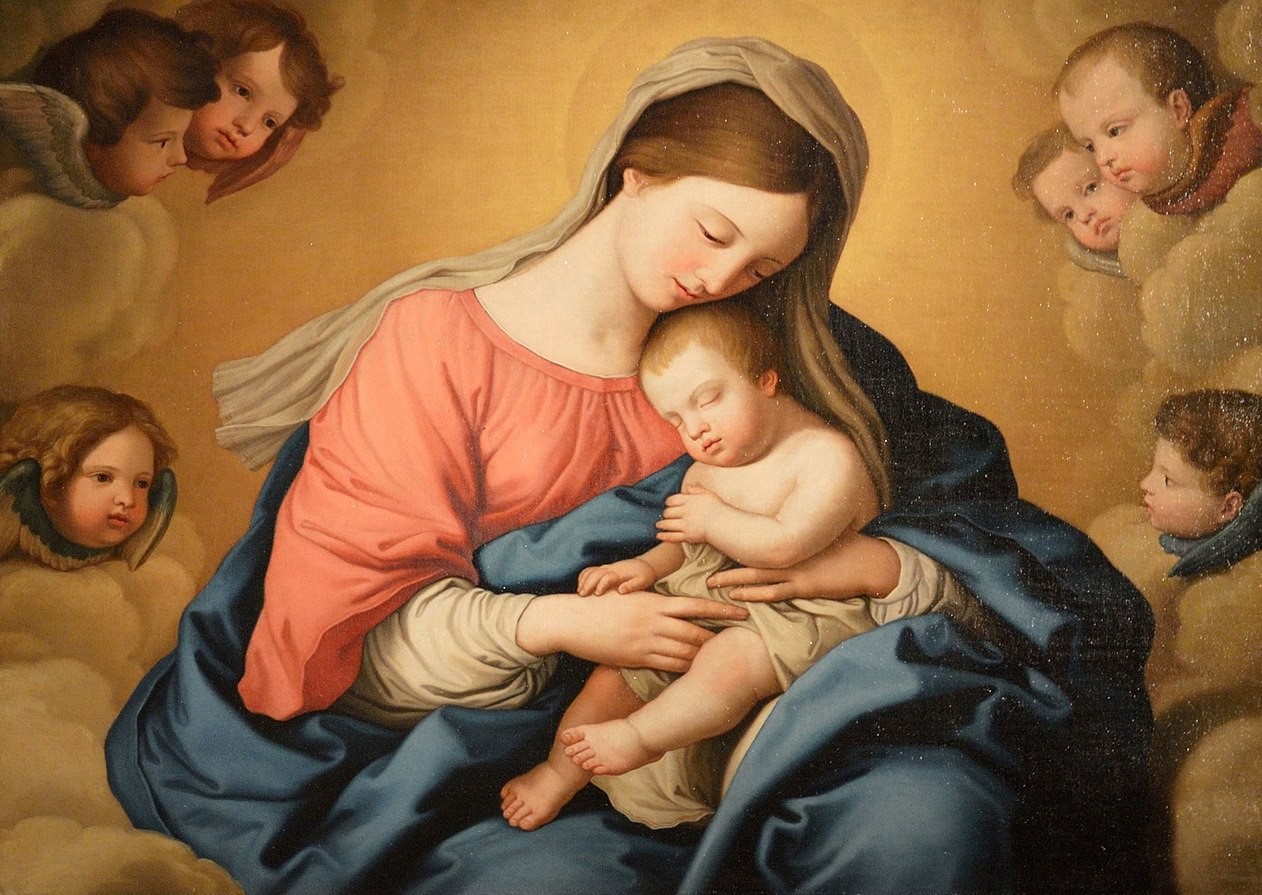The Queen: Editorial: Saint Pope John Paul on the Eucharist
Fr. James McMillan, SMM
This article was originally published in September 1980, about a year after becoming pope.
Saint Pope John Paul II . . .
From what we read in the media these days, and what we see and hear on radio and TV, Pope John Paul II emerges as a man of contradictions.
On the one hand, he is immensely popular. The pope clearly loves people. He has “the common touch,” he is an accomplished theologian and a forceful speaker. He has unbounded energy and an unlimited capacity for work. On the other hand, he is (gasp!) conservative in doctrinal matters. He is not much of an administrator (he’s away from his office a lot). Also, he is sort of anti-feminine (he won’t ordain women). And apparently wants to turn the universal Church into the image and likeness of the Church in Poland.
He delights some of the media people when he poses for pictures and when he kisses babies (as, of course, he should), and then leaves them aghast and agape when he insists that priests and religious live up to their vows and expects Catholic theologians to teach Catholic theology.
From this we gather that quite a few of the media folk have an idea of what they would like Pope John Paul to be: anything but a pope.
. . . on the Eucharist
He disappoints so many of them precisely because he takes his job seriously and refuses to be anything else but the Vicar of Christ on earth. They should have known from the very beginning, of course. He gave every indication that he intended to exercise strong and forceful leadership in a Church that seemed at times to be somewhat unsure of itself. He gave plenty of notice that he would tolerate no nonsense, liturgical or otherwise. And, he made it clear enough that the Catholic people have a right not to be confused in matters of faith and morals.
He released two documents this
year, one in February and the other in April.

Editorial
From time to time, The Queen will republish Editorials or create new Editorials on various topics.
The faithful,” said Pope John Paul, “have a right to a true liturgy. Which means the liturgy desired and stipulated by the Church
Return to The Queen: Articles
Both of them dealt with what is most precious in the Catholic Church and the Catholic faith: the Holy Eucharist. The first was a kind of theological discourse on the mystery and worship of the Blessed Sacrament. The second was a practical instruction, giving norms to follow in the sacrifice of the Mass and the furthering of Eucharistic devotion. In both of these documents, the pope followed his policy of emphasizing the clear, age-old, traditional – call it conservative if you like – teaching of the Church on doctrine and discipline with reference to the Blessed Sacrament.
The Pope’s First Two Writings: . . .
Someone called the first communication “only a pious meditation” and dismissed it without further comment. But the second one elicited the deepest groans of anguish. Not only was it considered “irrelevant to the needs of modern man,” it was also classified as “retrograde.” And was this because the pope was advocating something outlandish? Worse than that, he was committing the unthinkable crime of repeating what he had said in Washington. That the People of God have a right Not to be confused. Only this time he was referring not to theologians but to liturgists. He had the gall to state that the liturgy belonged to the Church and was not the private preserve of anyone’s individual whim and fancy. The Eucharist, he said, is too sacred to be left to the mercy of liturgical showboats.
The faithful,” said Pope John Paul, “have a right to a true liturgy, which means the liturgy desired and stipulated by the Church … Undue experimentation, changes and creativity bewilder the faithful. The Second Vatican Council’s admonition in this regard must be remembered. ‘No person, even if he be a priest, may add, remove or change anything in the liturgy on his own authority.’ ”
. . . On The Blessed Sacrament
There was one commentator on the pope’s message who bemoaned the fact that John Paul is paying attention to complaints that he hears from “ordinary Catholics”. To which the editors of this magazine reply: “Thank God”! We’ve heard, to the point of nausea, that this is “the age of the laypeople”. So far, we haven’t seen too much attention paid to the laypeople and their ideas. Maybe now that we have a Pope of the Eucharist, the laypeople, led by the pope, may help restore some of the sense of reverence and devotion to the Blessed Sacrament that we have been deprived of over the past several years


